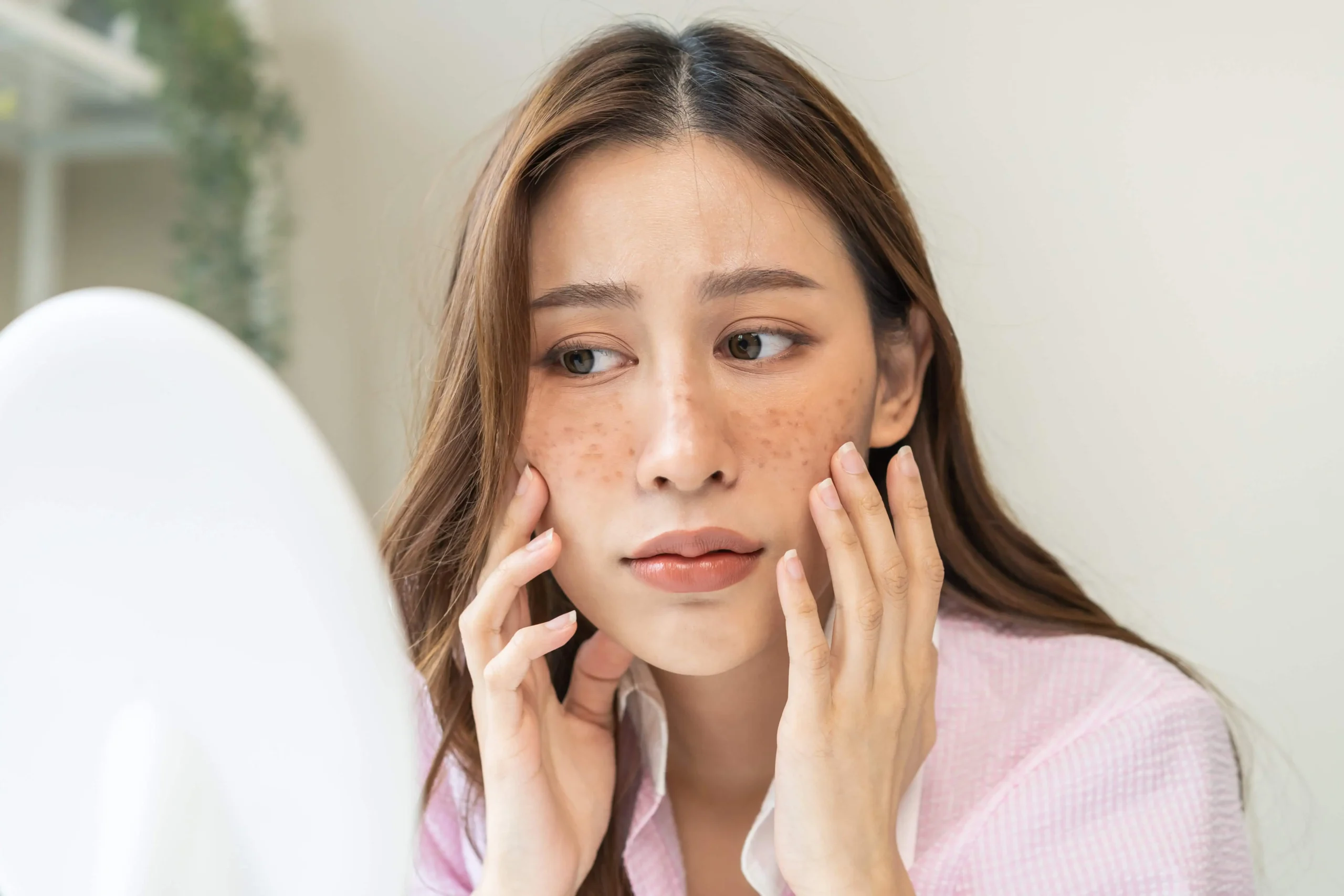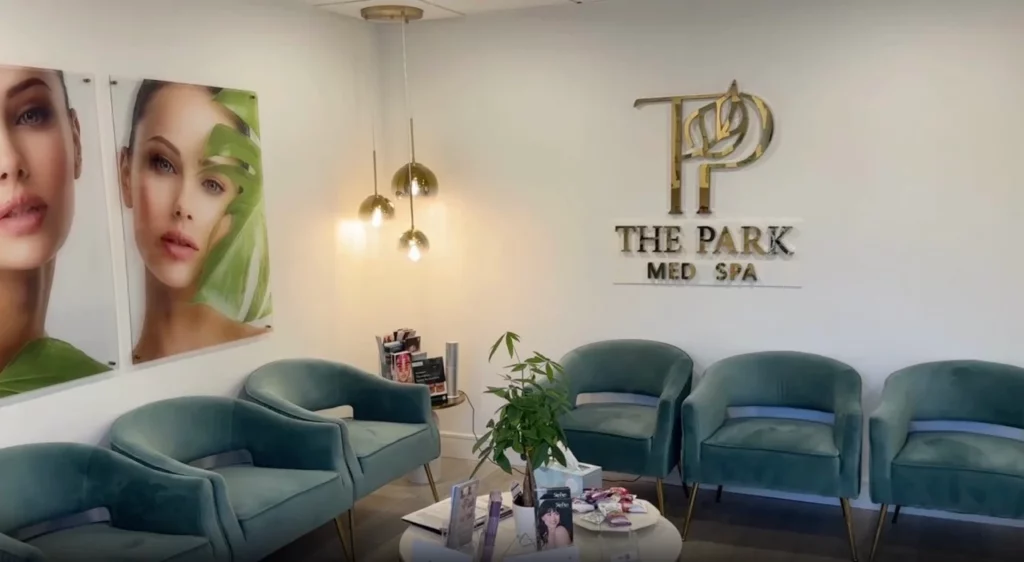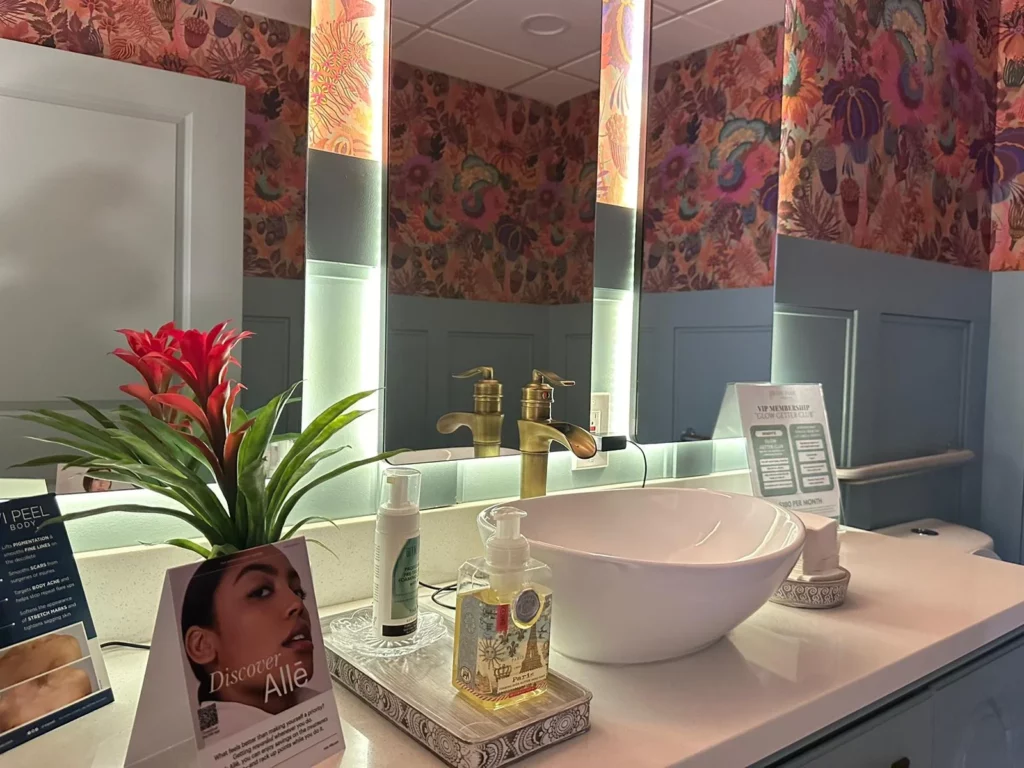Your Journey to Perfect Skin Starts Here
Book a Virtual Skin Consultation and enjoy 10% OFF your first treatment – exclusively for first-time clients.

Effective Acne Scar Treatment in Highland Park NJ for Smoother Skin
Acne scarring is a skin condition that can significantly affect an individual’s appearance and self-esteem. It often remains long after the acne has healed, leaving scars that vary in severity. Understanding acne scarring, its symptoms, causes, and treatment options is an important first step when seeking treatment.
Acne Scarring: An Overview
Acne scarring refers to the marks left on the skin after healing acne lesions, such as pimples, cysts, and nodules. While acne affects most people at some point, the following scarring can persist long after the acne clears up. Acne scars are typically caused by inflammation during the healing process, where the skin’s collagen production is disrupted. The result can be either atrophic (depressed) or hypertrophic (raised) scars.
Acne scars can significantly impact a person’s appearance, leading to lowered self-confidence and, in some cases, social withdrawal. The condition affects individuals of all ages, often more common in adolescents and young adults. However, it can occur at any age, particularly among those with persistent or severe acne.
Acne scarring can have profound emotional and psychological effects on an individual, influencing daily life, social interactions, and even professional opportunities.
Symptoms of Acne Scarring:
The symptoms of acne scarring can vary depending on the severity of the acne and the skin’s response to the healing process. Common symptoms include:
- Atrophic scars, which appear as shallow or deep depressions in the skin, are the most common type of acne scar, and are the most common type of acne scar.
- Hypertrophic scars: Raised or thickened scars that develop due to excessive overproduction of
- Post-inflammatory hyperpigmentation (PIH): Discoloration or dark spots left on the skin after acne may take weeks or months to fade but are not true scars.
- Keloid scars are more significant, more prominent scars extending beyond the original injury site, often seen in individuals with a genetic predisposition.
Acne scarring looks different on everyone, ranging in severity from person to person. Mild scarring might involve small, shallow indentations, while more severe cases can present deeper, more noticeable scars that can affect a large portion of the face or body. If left untreated, the wounds may persist for years, sometimes becoming more prominent with age.
Causes of Acne Scarring
Acne scarring occurs when acne lesions become inflamed and disrupt the skin’s normal healing process. Several factors can contribute to the formation of scars:
- Genetics: Some individuals are genetically predisposed to developing more severe scarring. This can make people more vulnerable to forming deep or raised scars following acne outbreaks.
- Skin type: People with darker skin tones may be more prone to post-inflammatory hyperpigmentation (PIH), while lighter skin tones are more susceptible to atrophic scars.
- Severity of acne: Severe acne, such as cystic or nodular acne, is more likely to cause scarring than mild forms like black and whiteheads.
- Inadequate treatment: Picking, squeezing, or popping pimples can increase the risk of scarring by pushing bacteria deeper into the skin, prolonging the healing process, and worsening inflammation.
- Delayed healing: Infections, improper treatment, or lack of skin care can lead to delayed healing, resulting in the formation of scars.
Treatment Options for Acne Scarring in Highland Park, NJ
Effective treatments for acne scarring aim to improve the skin’s texture, reduce pigmentation, and promote the regeneration of healthy skin. At The Park Med Spa in Highland Park, NJ, we offer a range of cutting-edge solutions for acne scars tailored to each patient’s needs. Some of the most popular and effective treatments include:
- Laser Treatments:
- Fractional CO2 Laser: This advanced treatment uses fractional laser technology to stimulate the lower levels of the skin and aid in collagen production.
- PicoSure Laser: This laser uses short bursts of energy to reduce pigmentation and stimulate collagen remodeling, helping to reduce the appearance of scars.
- Laser Skin Resurfacing: This method involves using lasers to remove the damaged upper layers of the skin and promote smoother, scar-free skin.
- Microneedling: Microneedling involves using fine needles to create tiny punctures in the skin. This procedure stimulates collagen production, leading to smoother, more even skin and reduced scarring. It’s particularly effective for atrophic scars.
- Chemical Peels: Chemical peels involve applying a solution to exfoliate the outer layers of skin, which can help reduce the appearance of scars and pigmentation.
- PRP (Platelet-Rich Plasma) Therapy: PRP therapy uses the patient’s blood to inject growth factors into the skin, promoting faster healing and regeneration of healthy tissue.
- Fillers: For deep scars, dermal fillers can raise the skin and lessen the appearance of indented acne scars.
Recovery time varies by treatment, but most patients experience minimal downtime, particularly with non-invasive procedures like microneedling and chemical peels. While results can take a few weeks to become noticeable, many patients see significant improvements after several treatments.
We would love to hear from you!
Please fill out this form and we will get in touch with you shortly.
FAQ's
How long will it take to see results from acne scarring treatments?
Most patients notice improvements within 4-6 weeks after the first treatment. Full results typically appear after several treatments and continued improvement may be seen over several months.
Will acne scarring go away on its own?
Acne scars do not usually go away on their own and may persist for months or even years. However, treatments can help significantly reduce their appearance. In some cases, scars may naturally fade, but professional treatment offers the most effective and long-lasting results.
Can acne scarring be prevented?
While acne scarring can be minimized, it is difficult to prevent entirely. Using a good skin care regimen and refraining from face-picking can reduce the likelihood of scarring. Preventative care can help reduce the severity and number of scars.
Are acne scar treatments painful?
Most acne scar treatments are minimally painful, with discomfort typically managed through topical numbing creams. More invasive procedures, like laser treatments, may cause mild discomfort, but this is usually brief. Any pain or discomfort during recovery is generally manageable with over-the-counter pain relief.
How many acne scarring treatments will I need to see noticeable improvement?
The number of treatments required depends on the severity of the scarring and the type of treatment chosen. For most patients, 3-6 treatments spaced a few weeks apart yield the best results.
Will my acne scars come back after treatment?
Acne scars typically do not return once treated. However, new acne breakouts can result in fresh scarring if not appropriately managed. Maintaining good skincare habits and continuing acne treatment will help prevent potential future breakouts.
The park medspa
Trust, Expertise, Radiance
Our boutique Spa will offer you a free consultation, a relaxed and unique atmosphere with a fair price structure and the opportunity to benefit from special programs and promotions throughout the year.

